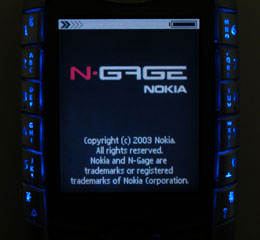Microsoft have announced that they will be introducing a licensing fee for the use of their patented portions of the File Allocation Table (FAT).
The FAT contains the list the filenames, their size and location of files that are held on computer media – essentially the index of the files are stored and is used to retrieve them. The structure was originally developed under Microsoft’s original Disk Operating System (DOS) and then under in Windows, later to be replaced by NT Filing System (NTFS). It has become the dominant standard and as such enables the simple interchange of files between different digital devices, such as transferring digital photos held on a camera using a removable Smart Media or via USB lead to a PC.
Microsoft propose two licensing models; one for removable media, covering the preformatting of the media and media preloaded with content, which could, for example be USB drive keyrings, memory cartridges, etc; the other for manufacturers of certain consumer electronics (CE) devices, which they define as follows
“portable digital still cameras; portable digital video cameras; portable digital still/video cameras; portable digital audio players; portable digital video players; portable digital audio/video players; multifunction printers; electronic photo frames; electronic musical instruments; and standard televisions”.
Charges are planned at US$0.25 per unit with a cap on total royalties of $250,000 per manufacturer.
They are effectively saying, if your consumers want to easily exchange information with computers that run Windows, you need to pay us some money to enable that. This could be because they now acknowledge that not every consumer electronics devices will run Windows and want to ensure that they gain some income from them.
It will be interesting to see how the CE companies respond. Will they grit their teeth and pay Microsoft, or will they collectively decide to use an open source filing system. It is a potentially risky move by Microsoft, and could have the affect of pushing people away from their platform.
 If true, the impact is far reaching. Games written for the N-Gage will run on any phone running the Symbian operating system and according to Symbian, over 2.68 million handsets were shipped with their OS in the first half of 2003.
If true, the impact is far reaching. Games written for the N-Gage will run on any phone running the Symbian operating system and according to Symbian, over 2.68 million handsets were shipped with their OS in the first half of 2003.